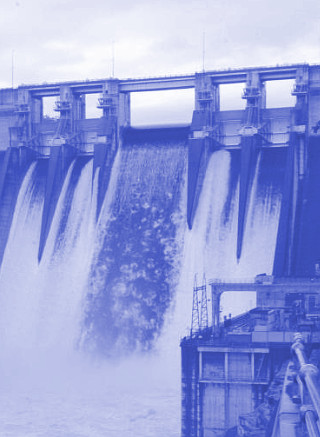Ecologists decry dam changes
 A parliamentary inquiry has heard that ecologists’ concerns with Warragamba dam plans have been whitewashed.
A parliamentary inquiry has heard that ecologists’ concerns with Warragamba dam plans have been whitewashed.
The NSW Government is moving ahead on a multibillion dollar plan to raise the wall of Warragamba Dam - Sydney’s main water reservoir.
An upper house inquiry has been looking into the government’s plan to raise the Warragamba dam wall by at least 14 metres.
Ecologists have told the inquiry that their input into the environmental impact statement (EIS) for the project, which highlighted threats to endangered species in the world heritage-listed region, had been watered down or ignored altogether.
Rachel Musgrave, a former primary assessor for biodiversity surveys and analysis for the EIS, said she went so far as to resign out of concern that her accreditation as an ecologist might be at risk.
Reports say WaterNSW would face at least $2 billion in costs to offset the likely damage caused by inundating as much as 6,000 hectares in the Blue Mountains world heritage region to Sydney’s west.
Ms Musgrave said WaterNSW’s consultants wanted her to interpret the impacts of the wall raising as “indirect”, rather than direct, to reduce or eliminate the cost.
“As I felt that the changes were not immaterial – these were substantive changes to the impact assessment – and I requested that my name be removed … from the report,” she said.
She said that when her request was refused, she resigned rather than put her qualification in peril.
“We have certain obligations and our code of conduct as an accredited assessor,” Ms Musgrave said.
Ecologist Ross Crates said his findings were “watered down” by the same consultants.
“There has been significant editing to the wording that I initially proposed for the upstream biodiversity assessment reports” in the EIS, Mr Crates said.
“That has been significantly diluted presumably to water down the envisaged impacts of the proposed development.”
He said words such as “will” were altered to “could” in some cases.
Ecologist Steve Douglas undertook an independent review of the draft and final versions of the EIS.
He said; “There’s multiple instances of selective editing to favour the proponent’s interests”.
“[They] essentially dilute the impact and make it look not as significant as it is,” he said.
WaterNSW has issued a statement to reporters that says its “consultation work was fully compliant and meets the highest standard”.







 Print
Print